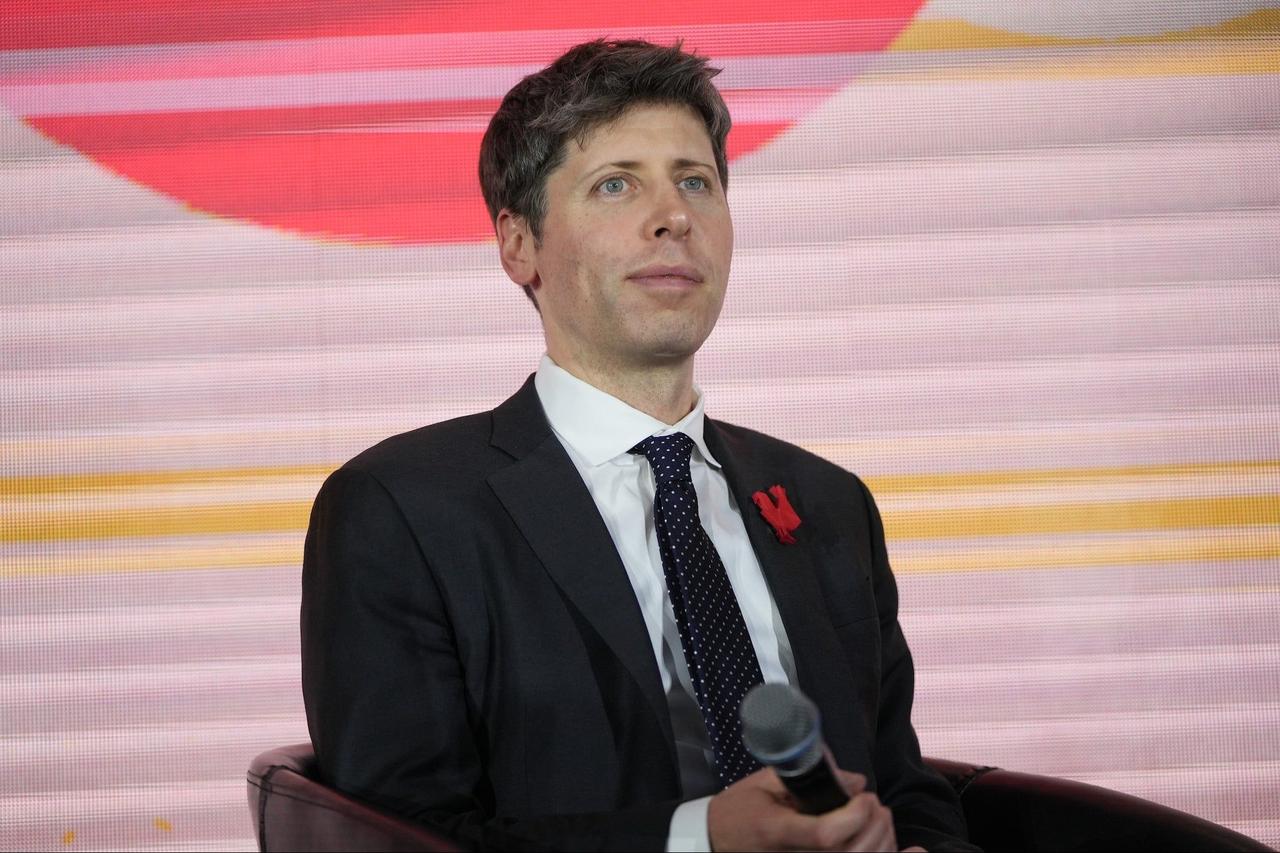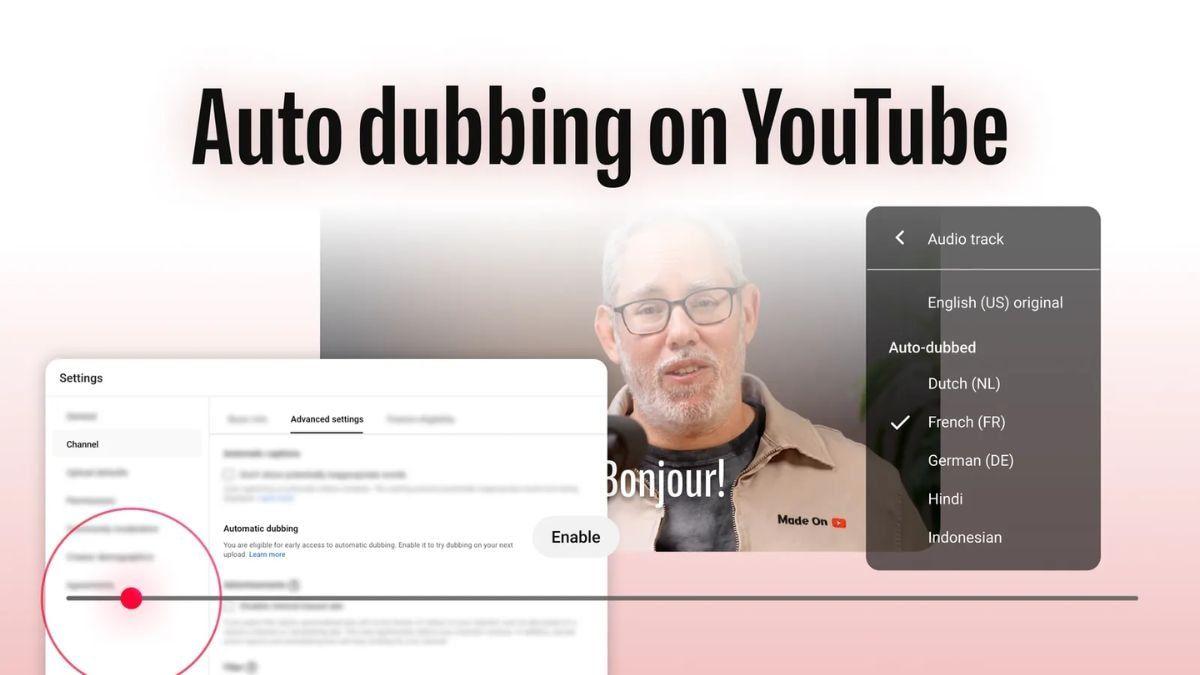Microsoft CTO Predicts AI Will Generate 95% of Code by 2030, Reshaping Software Development
2 Sources
2 Sources
[1]
Microsoft CTO predicts AI will generate 95 percent of code by 2030
The big picture: The future of computer programming is facing a seismic shift driven by advances in artificial intelligence. Industry leaders have contrasting perspectives on how AI will reshape software development, with predictions ranging from transformative to cautious. One Microsoft executive has a more optimistic outlook, forecasting AI's dominance in coding within the next five years. Microsoft CTO Kevin Scott predicted that 95 percent of programming code will be AI-generated by 2030. However, he quickly clarified that this does not signal the end of human involvement in software engineering. "It doesn't mean that the AI is doing the software engineering job ... authorship is still going to be human," Scott explained. "It creates another layer of abstraction [as] we go from being an input master (programming languages) to a prompt master (AI orchestrator)." He doesn't believe AI will replace developers, but it will fundamentally change their workflows. Instead of painstakingly writing every line of code, engineers will increasingly rely on AI tools to generate code based on prompts and instructions. In this new paradigm, developers will focus on guiding AI systems rather than programming computers manually. By articulating their needs through prompts, engineers will allow AI to handle much of the repetitive work, freeing them to concentrate on higher-level tasks like design and problem-solving. Despite its promise, current AI systems have significant limitations - particularly their ability to retain memory. Scott acknowledged that today's AI assistants are "awfully transactional," meaning they struggle to recall past interactions or adapt to user preferences over time. However, he believes this is a temporary issue. Scott predicts that future AI tools will offer more personalized and context-aware assistance as they learn from previous interactions. "In the places where agents have memory - it is limited," the CTO said. "Memory is going to get a lot better over the next year." A debate over AI's role in programming is occurring throughout the industry. Recently, IBM CEO Arvind Krishna weighed in at the SXSW conference with a more measured outlook. Krishna argued that AI will enhance productivity rather than replace programmers outright. He estimated that AI would handle about 20 to 30 percent of coding tasks but emphasized its limitations in tackling more complex challenges. "If you can produce 30 percent more code with the same number of people, are you going to get more code written or less?" Krishna rhetorically posed, suggesting that increased efficiency would stimulate innovation and market growth rather than job losses. Salesforce CEO Marc Benioff agrees with Krishna on reskilling workers for an AI-driven future. Benioff has suggested that his company may stop hiring traditional engineers in 2025 due to productivity gains enabled by AI tools but stressed the importance of human expertise in collaborating with these technologies. Meanwhile, Anthropic CEO Dario Amodei has offered a prediction similar to Scott's but with a far more aggressive timeline. He believes AI could generate up to 90 percent of code within six months - a speed that underscores how rapidly these tools are advancing.
[2]
AI to write 95% of code in five years: Microsoft CTO Kevin Scott
However, people will still be crucial for the creative and problem-solving parts of software development. Top-tier developers will use AI as a force multiplier to enable them to operate with greater efficiency and scope, he pointed out.Microsoft chief technology officer (CTO) Kevin Scott has predicted that artificial intelligence (AI) will generate 95% of all code within the next five years. Despite the sweeping nature of this transformation, Scott emphasised that human developers will continue to play a vital role in software engineering. Speaking on the 20VC podcast, Scott said that in the near future, most code will not be written by humans. "Very little is going to be -- line by line -- human-written code," he said. But he made it clear that this does not mean human programmers will be sidelined. While AI will take over routine coding tasks, people will still be crucial for the creative and problem-solving parts of software development. "Think about this as sort of raising everyone's level," he said, adding that AI will make it easier for more people to build basic applications or websites. With AI tools, even those without deep technical skills can generate working code. However, Scott was clear that AI will not replace human skill when it comes to addressing sophisticated engineering challenges. "If you are trying to solve the world's hardest computational problems, you're going to need computer scientists," he said. He expects top-tier developers to use AI as a force multiplier, enabling them to operate with greater efficiency and scope. Scott also highlighted how AI could simplify product development by enabling end-users to generate solutions themselves, reducing the need for intermediary roles in the development lifecycle. His comments come amid broader industry discussion about AI's impact on engineering jobs. ET reported on March 22, OpenAI chief executive officer Sam Altman -- whose company is backed by Microsoft -- told Stratechery's Ben Thompson that the demand for software engineers may taper off in the future. "My basic assumption is that each software engineer will just do much, much more for a while," Altman said. "And then at some point, yeah, maybe we do need less software engineers." Also Read: 'We weren't born to do jobs': Bill Gates on AI's impact on work
Share
Share
Copy Link
Microsoft's CTO Kevin Scott forecasts that AI will generate 95% of programming code by 2030, emphasizing a shift in developers' roles from manual coding to AI orchestration. This prediction sparks industry debate on AI's impact on software engineering.

AI's Dominance in Code Generation by 2030
Microsoft's Chief Technology Officer, Kevin Scott, has made a bold prediction about the future of software development. According to Scott, artificial intelligence (AI) will generate 95% of programming code by 2030
1
. This forecast has ignited a debate within the tech industry about the evolving role of human developers in an AI-driven future.The Changing Landscape of Software Engineering
Scott emphasizes that while AI will dominate code generation, it doesn't signal the end of human involvement in software engineering. Instead, he envisions a shift in the developer's role:
"It doesn't mean that the AI is doing the software engineering job ... authorship is still going to be human," Scott explained. "It creates another layer of abstraction [as] we go from being an input master (programming languages) to a prompt master (AI orchestrator)."
1
This transformation suggests that developers will focus more on guiding AI systems through prompts and instructions rather than writing every line of code manually. The change is expected to free up engineers to concentrate on higher-level tasks such as design and problem-solving.
Industry Perspectives and Timelines
While Scott's prediction is set for 2030, other industry leaders have varying views on AI's impact on coding:
- IBM CEO Arvind Krishna offers a more conservative estimate, suggesting AI will handle about 20-30% of coding tasks
1
. - Anthropic CEO Dario Amodei presents a more aggressive timeline, predicting AI could generate up to 90% of code within six months
1
. - Salesforce CEO Marc Benioff anticipates significant changes, hinting at a potential halt in hiring traditional engineers by 2025 due to AI-driven productivity gains
1
.
The Human Element in AI-Driven Development
Despite the increasing role of AI in code generation, industry leaders stress the continued importance of human expertise:
- Scott believes top-tier developers will use AI as a force multiplier, enhancing their efficiency and scope
2
. - For complex computational problems, computer scientists will remain essential
2
. - AI is expected to democratize basic application and website development, making it accessible to those without deep technical skills
2
.
Related Stories
Challenges and Future Improvements
Current AI systems face limitations, particularly in memory retention. Scott acknowledges that today's AI assistants are "awfully transactional," struggling to recall past interactions or adapt to user preferences over time
1
. However, he anticipates significant improvements in AI memory capabilities over the next year, leading to more personalized and context-aware assistance1
.Impact on the Job Market
The increasing role of AI in software development raises questions about its impact on the job market:
- IBM's Krishna suggests that increased efficiency will stimulate innovation and market growth rather than cause job losses
1
. - OpenAI CEO Sam Altman speculates that while each software engineer may become more productive, the overall demand for software engineers might eventually decrease
2
.
As the industry adapts to these changes, reskilling workers for an AI-driven future remains a key focus for many tech leaders.
References
Summarized by
Navi
Related Stories
Recent Highlights
1
Elon Musk merges SpaceX with xAI, plans 1 million satellites to power orbital data centers
Business and Economy

2
French Police Raid X Office as Grok Investigation Expands to Include Holocaust Denial Claims
Policy and Regulation

3
UK launches formal probe into xAI as Grok continues generating sexualized images without consent
Policy and Regulation








